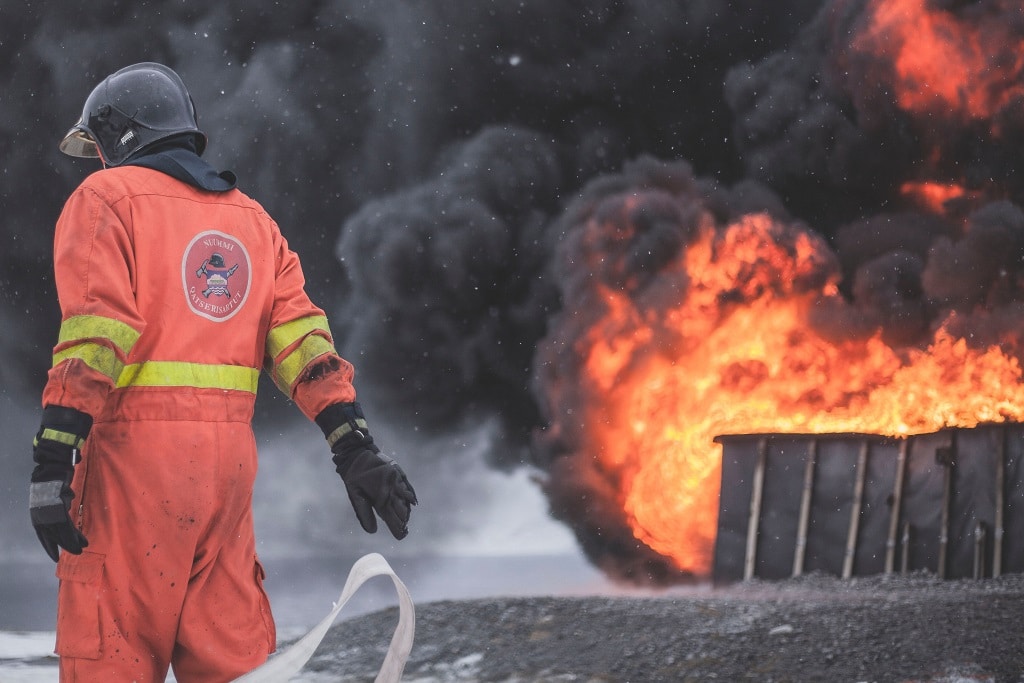Emergencies are something you hope never happens, but they’re also something you should always be prepared for.
Preparing for the unknown might sound impossible, but it’s easier than you might think. In fact, you probably already have many resources on hand to deal with emergencies.
Creating a plan to deal with possible emergencies now makes it much easier to handle them when the worst does happen. Hopefully, it never will, but at least you’ll be prepared.
Identify Your Risks
Your first step is to consider all your possible risks. For instance, if you’re near a major river, flooding would be a possible emergency. Every business also has to consider human problems, such as an active shooter.
By identifying your risks, you’re able to see where you’re already prepared and where you need to strengthen your plans and resources. It’s recommended to work on this as a team. Always include your security team, especially any security guards, as they have years of experience in dealing with emergency scenarios.
Another helpful resource is the Red Cross. The Red Cross Ready Rating Program uses a 123-point checklist to help you identify areas for improvement. You’re able to go through the checklist yearly to improve your score and better prepare your business for emergencies.
Create Plans
The next step is to create detailed plans, called emergency preparedness plans, for dealing with each type of emergency. For instance, if an employee starts to have a heart attack, what’s the procedure to help them until paramedics arrive?
Your plans include which employees are in charge, where resources are located, evacuation procedures and what to do after the emergency. For instance, how does your business start to recover after a major fire?
Ready.gov offers several toolkits to help plan for natural disasters. These work well as guides and even help you work on plans for other emergencies. FEMA also offers advice for creating detailed plans along with estimating the costs of emergencies and resources.
Another valuable resource is your local emergency personnel. Talk to law enforcement, EMS and your fire department to uncover potential problems. They can also help review your plans to ensure you’ve covered all possible scenarios.
Practice Everything
Having an emergency preparedness plan isn’t useful unless you practice it. What sounds good on paper might not work out so well in reality. For instance, evacuating employees down a narrow stairwell might seem like a good idea, but what happens if employees start to panic? This could lead to people being crushed.
You also need to practice to see who should be left in charge. Check to see who actually has the proper training and who can stay calm in the face of an emergency. The person you originally chose might not be able to handle an emergency quite as well as you first thought.
Take the time to go through every plan thoroughly. It doesn’t just help you create better plans and be more prepared for emergencies. It also helps your staff better understand what to do when the worst happens. You should review your plans at least every year or after every major change to your business, such as a new location or layout.
Incorporate Security
Your security team is one of your most valuable resources during an emergency. When you hire trained security guards, you’re hiring years worth of experience. Usually, guards have law enforcement training and experience, which helps them to stay calm in the worst emergency scenarios.
When an emergency happens, your employees are more likely to trust a security guard than just a fellow co-worker. Your guards are ideal for getting employees to safety during an active shooter incident or ensuring everyone evacuates safely during a fire or earthquake.
Contact BOS Security
Want to boost your security team with trained security guards? Contact us at 404-793-6965 to see how we can help.
Not sure where your vulnerabilities lie? Start with our free Security Needs Assessment to uncover your security vulnerabilities.
Image: Arny Mogensen
Related Articles:
